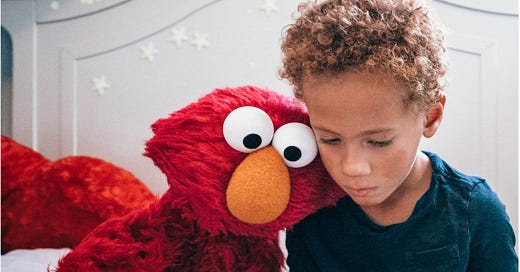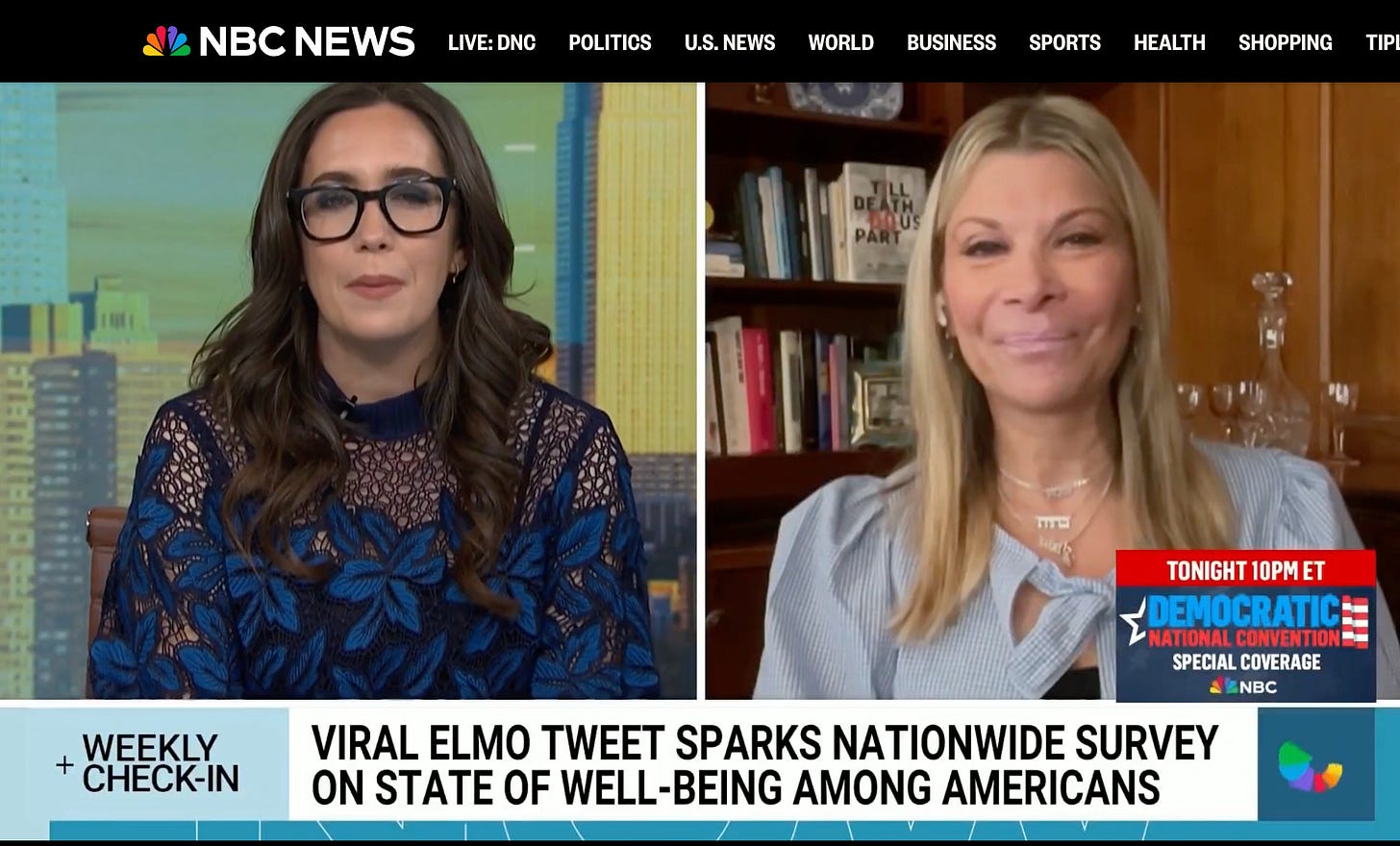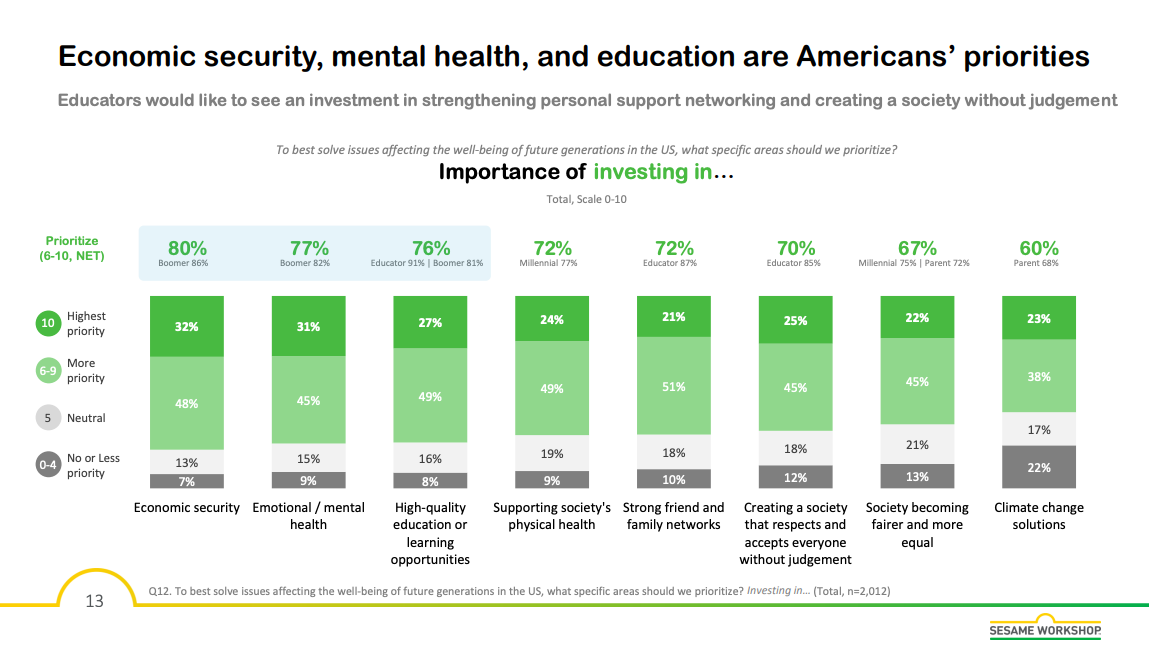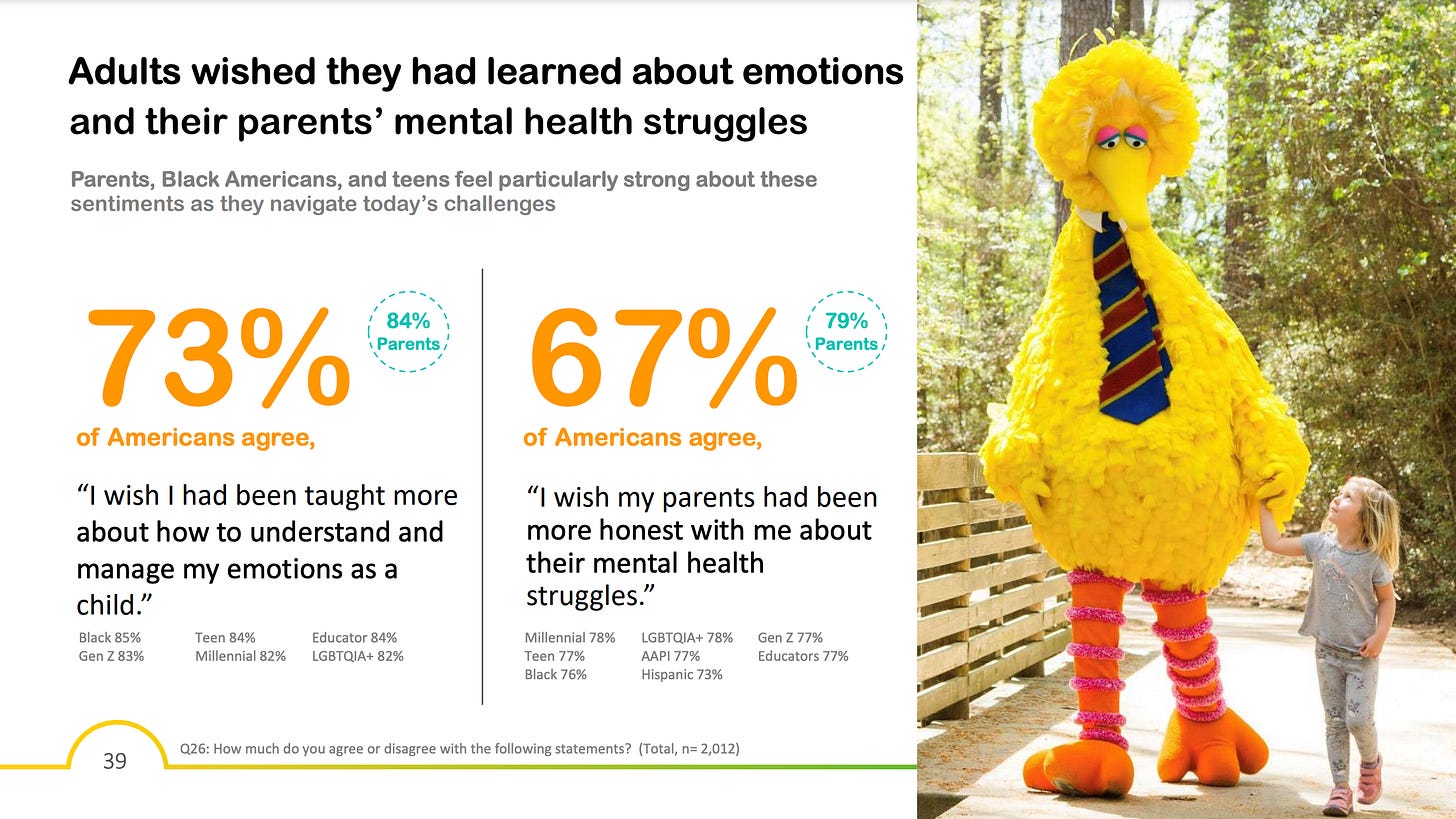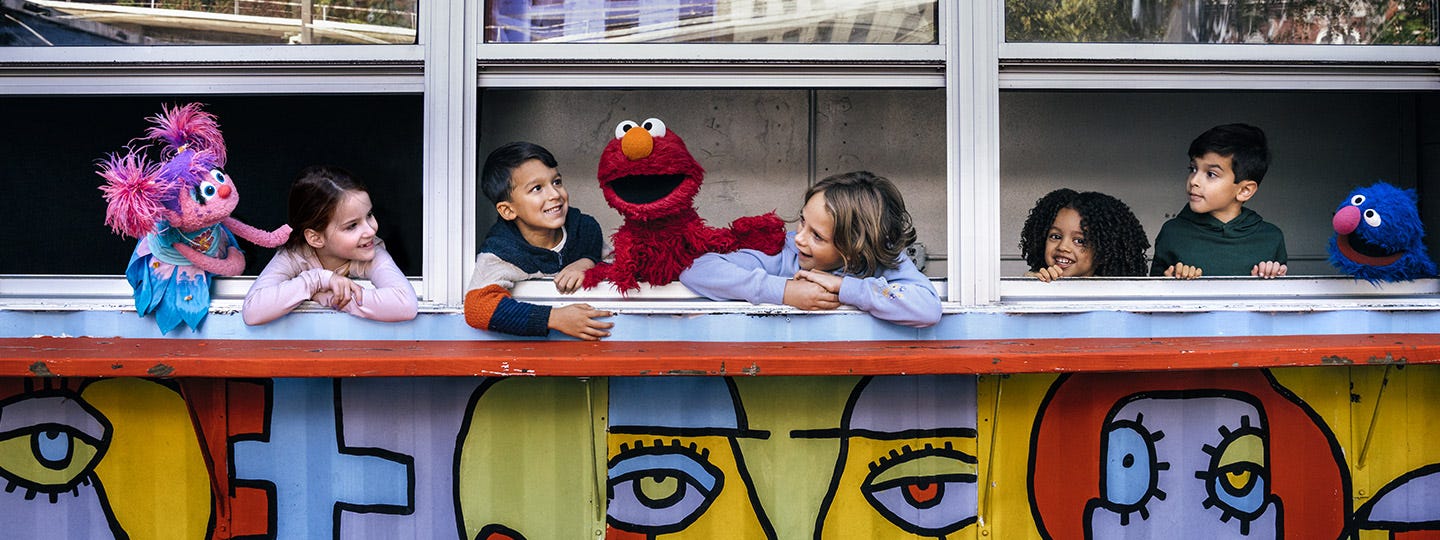Elmo Asks, America Answers: Unpacking Our Mental Health Crisis
A plea for parents to get honest about their own mental health struggles
Elmo pierced our collective consciousness when the beloved red muppet asked everyone, "How is everybody doing?" The floodgates opened to an overwhelming response— of distress, despair, anxiety, angst, malaise, and hope; over 3 million heartfelt responses poured in with over 300 million engagements. This significant moment led Elmo’s creators at Sesame Workshop, the global impact nonprofit behind Sesame Street, to partner with Harris Poll to shed light on the mental health crisis, launching a first-of-its-kind index on the state of well-being in America.
The findings, compiled in Sesame Workshop’s State of Well-Being Report, offer a candid glimpse into the public psyche and the pervasive mental health challenges facing our nation today, featuring in the LA Times: What Elmo — and his human friends — learned by asking Americans about their mental health and featured on NBC News.
You can read the full report here
What Does the Data Say?
1. Beyond GDP: A Call to Prioritize Mental Wealth
Americans are now elevating mental health to the same level of importance as the economy. This marks a critical evolution in our national consciousness—we've progressed beyond mental health taboos ➡ to acknowledging mental health issues ➡ now finally to vocally demanding action.
Americans insist that true well-being requires a dual focus—economic health must go hand-in-hand with substantial investments in mental health and education. This bold stance is a clarion call to shift our national priorities, placing mental wealth firmly alongside economic wealth on the national agenda.
And Americans want to see leaders mirror these priorities, with 81% saying, “Leaders of our institutions need to reorientate their priorities around well-being.” We are watching for this sentiment to shine through this fall.
2. Leveling Up Our Mental Health Skills
There's a notable longing for better techniques and coping mechanisms to manage emotions across younger generations.

82% of Gen Z and Millennials agree, “I wish I had been taught more about how to understand and manage my emotions as a child,” compared to 65% of respondents from older generations.
And 63% of Gen Z and Millennials say that "Schools should focus on social and emotional skills just as much as academics" as opposed to focusing on only academics the majority of the time (71% of educators agree)
This highlights a crucial gap in our educational and societal frameworks, where fostering resilience and kindness are essential, yet often overlooked, skills.
3. Designing Kindness & Resilience: Parents Are Actively Engaged in Stopping Generational Tramua

There's a growing willingness among the public to reshape the social fabric and ensure future generations do not repeat the cycles of the past. Key to this transformation is transparency about mental health and the willingness to seek help.
79% of parents expressed a wish that their parents had been more open about their mental health challenges. This indicates an intense desire among today’s parents to end the historical silence surrounding mental health issues.
Moreover, 87% of Americans believe that children will only develop kindness if the adults around them actively model it. Additionally, 89% state that adult honesty about personal emotions is crucial for nurturing resilience in children. This underscores the vital role adults play in teaching and embodying the principles of emotional health and resilience.
“It’s heartening to see the growing openness around mental health discussions today.Americans understand that mental health is a vital issue, and that’s why the need for our work has never been greater. By celebrating everyday joys, teaching children to understand their emotions, and helping parents recognize the signs of more serious mental health challenges, we’re building a solid foundation for children’s emotional well-being that will support them for years to come.”
-Samantha Maltin, chief marketing and brand officer of Sesame Workshop,
Conclusion: Championing Sesame Workshop’s Mission
This report serves as a direct call to action: practicing honesty and kindness in our daily interactions, particularly with children, is essential. Being vulnerable and open about our feelings and consistently demonstrating kindness to ourselves and others can lay the groundwork for emotionally resilient and compassionate future generations. Embracing the principles of emotional availability today will shape a healthier, more empathetic society tomorrow.
The insights from the State of Well-Being Report underline the vital work Sesame Workshop has been pioneering for over five decades. With a focus on emotional well-being, Sesame Workshop has been at the forefront of addressing not just educational needs, but the deeper emotional and social issues that shape our collective future. Their recent commitment to enhancing the emotional well-being of children and families around the world is not just timely—it's imperative.
Sesame Workshop continues to offer invaluable resources, available in English and Spanish, to support children, parents, and caregivers. By nurturing understanding and emotional intelligence from a young age, Sesame Workshop addresses the symptoms and the roots of the mental health crisis.
In an era where mental health has swiftly become a central concern for our society, supporting organizations like Sesame Workshop is essential. Their initiatives across 150 countries demonstrate a mission that transcends cultural and geographical boundaries, making a profound global impact.
Join me in supporting a vision where every child is equipped to navigate life's complexities with resilience and kindness. Let’s answer Elmo's question with actions that affirm our commitment to a healthier, more empathetic world.
Shout out to Danielle Sumerlin and Elias Alling , for leading this report!
3 Links
Subscribed
Curiosity is contagious; if you like this newsletter, please share it!!
Penned by Libby Rodney and Abbey Lunney, founders of the Thought Leadership Group at The Harris Poll. To learn more about the Thought Leadership Practice, just contact one of us or find out more here.

